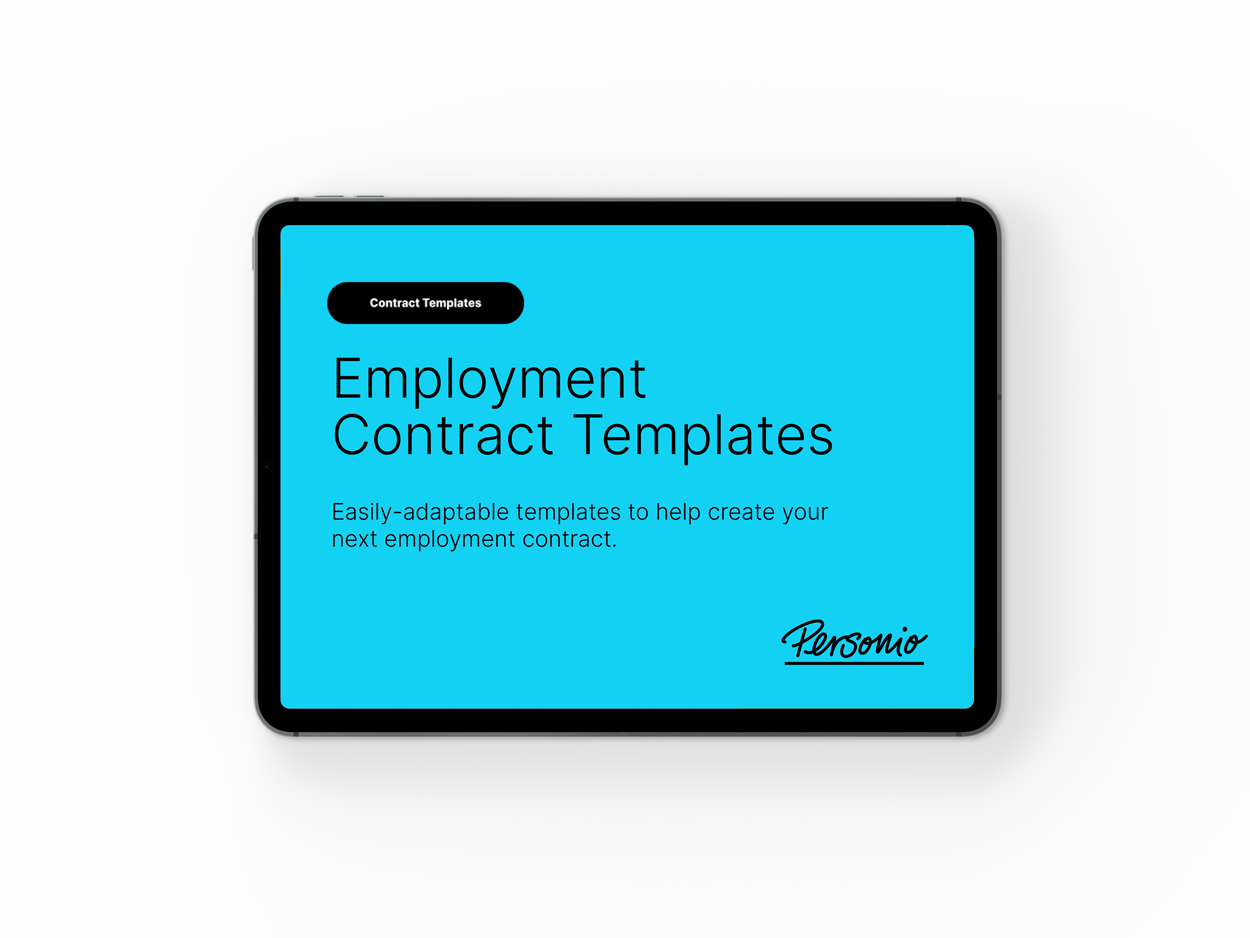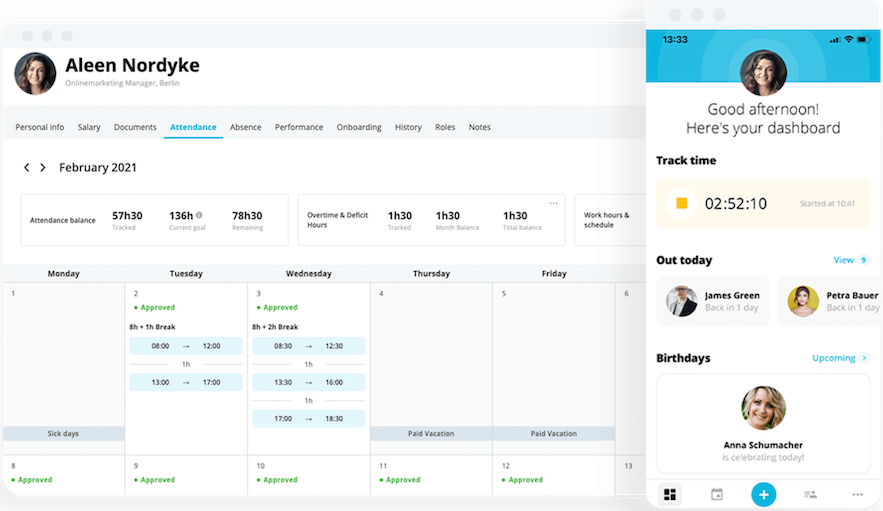Permanent Contract: Answers for HR ad Managers
What is a permanent contract? When an organisation reaches a specific size, employing people who can fully commit to your company using a permanent contract makes sense. Let’s talk about all things permanent contracts in today’s article.
Pen your next employment contract with our helpful selection of templates.Contents
- 1What Is a Permanent Contract?
- 2When Does a Temporary Contract Become Permanent in the UK?
- 3What Does a Permanent Contract Include?
- 4Advantages and Disadvantages of Permanent Contracts
- 5When Should You Choose a Permanent Contract of Employment?
- 6Frequently Asked Questions About Permanent Contracts
- 7Designing & Signing Employment Contracts at Scale
What Is a Permanent Contract?
A permanent contract is a written agreement or document between an employer and their employee. In a permanent contract, an employee agrees to provide their services on a continual basis to meet the contract requirements.
Permanent contracts do not have an end date (i.e. will not expire), unless the employee resigns or the employer terminates the contract (e.g. due to redundancy or dismissal).
When Does a Temporary Contract Become Permanent in the UK?
According to UK government sources, any employee on a fixed-term contract for four or more years will automatically become a permanent employee. However, if the employer can show a good reason for them not to become permanent, the employer may have a case to maintain their fixed-term contract status. For example, an employer or union might create a collective agreement – removing the automatic right to become a permanent employee.
What Does a Permanent Contract Include?
UK law is quite specific about what should be included in a permanent contract. The Employment Rights Act 1996 says a ‘Statement of initial employment particulars’ must include the following items:
Company name
Name of employee
Job title
Job description
Location of work and the employer’s address (these do not have to be the same)
Start date
Salary amount and payment frequency
Conditions of work – the employment package – including:
Holiday or annual leave (at least the statutory minimum level of paid holiday)
Sick pay (including at least statutory sick pay)
Pay and leave for maternity, paternity and adoption
Pension (all employers must provide UK employees with a workplace pension scheme)
Additional employee benefits, if you choose to include them, such as
Car allowances
Commission payments
Expected work hours
Any training the employer will provide
Probationary period (if required, including its conditions and duration)
How to terminate a contract (notice period)
Important legal stuff (restrictive covenants), including, if necessary and appropriate:
A non-compete clause
A non-poaching or non-solicitation clause
A confidentiality agreement
Intellectual property restrictions.
Download: Employment contract templates

We took the time to create some helpful, UK-specific employment contract templates to help your organisation sign your next great hire. Download them today for free.
Download them nowAdvantages and Disadvantages of Permanent Contracts
In companies where staff have been employed on a short-term, contract, fixed-hours, zero-hours or fixed-term basis successfully it may seem unnecessary to move staff to new contracts or employ new permanently.
Here are the biggest benefits and disadvantages of permanent contracts:
Benefits of Permanent Contracts
The biggest advantage of permanent contracts for an organisation, and the primary reason for an employer to offer their employees a permanent contract, is to keep them with your company.
Skilled employees are more likely to stay with you if they have a secure job with benefits and the opportunity to learn, progress or feel like they’re part of a team. In turn, this improves the certainty of your labour force and continuity of labour supply for your business.
The benefits of offering an employee job security, income security and stability is that, as a business, you’re more likely to benefit from greater loyalty and commitment – providing, of course, that you continue to deliver on your promises to your employee and meet your psychological contract.
Drawbacks of Permanent Contracts
There are disadvantages to employing staff on permanent contracts, however. Organisations take a greater risk when employing permanent staff. It’s harder to get rid of an employee if they’re not performing or if circumstances such as profitability change rapidly.
In addition, unlike when you’re employing contractors, companies with permanent staff become responsibile for dealing with the consequences of their employees’ actions. This leads to greater liability. (That’s partly why UK-based employers are required to have employers’ liability insurance and meet various other requirements such as providing a safe and secure working environment, paying at least the minimum wage and avoiding discrimination in the workplace. Source: gov.uk).
Once an employee is hired on a permanent contract, it is an employer’s responsibility to set the contracts up in the right way and ensure benefits are provided. This does require more administrative work than employing someone as a contractor (as contractors would manage these elements themselves).
Employers also have a reasonable responsibility to ensure employees are supported, motivated and encouraged to be effective while ensuring they deliver against expectations and meet the job requirements. When an employee has a permanent contract, they can reasonably expect to be trained and supported to do their job to the best of their ability and continue learning.
Permanent contracts are less suitable when one party expects more flexible or agile working than the other. If you’re looking for employees on a short-term, time-limited or project-specific basis, offering them a permanent contract is not a good idea.
When Should You Choose a Permanent Contract of Employment?
If your business is growing and you’re looking for the certainty and security of having an employee work with and for you for the long term, it’s wise to invest in staff by providing them with a permanent contract.
This will commit you to a long-term relationship. Employees with a permanent employment contract will also benefit from added employment law protection that does not apply to those with short-term contracts, zero-hours contracts, freelancers, consultants or contractors.
It may be better to employ people on a permanent contract if:
You have long contracts with your clients that require dedicated resources.
You’re focused on customer service and want to maintain and strengthen customer relationships by providing a single point of contact in your organisation.
You know that employees are likely to feel more comfortable and secure with a fixed-term contract or permanent role so that they will do better work.
Your organisation is in growth mode and you can’t afford the hassle and pain of replacing people frequently.
You believe in investing in your staff and want to make sure people stick around to benefit from employee training programmes like on-the-job training, upskilling training, or continuous professional development.
You know that employees who stay around longer are more likely to buy into your organisational culture and values and demonstrate them in their work.
Frequently Asked Questions About Permanent Contracts
What is a permanent contract?
In contrast to casual, short-term, fixed-term or zero-hours contracts, a permanent contract does not expire. It remains in place until an employee resigns or an employer terminates the contract for valid legal or other reasons, such as redundancy.
Can a permanent contract be terminated?
Yes, a permanent contract can be terminated by employees or employers. Employees can terminate a contract by giving the required amount of notice, as stated in the contract. Employers can terminate permanent contracts due to employee misconduct or poor performance after going through the proper processes, including providing a written warning. These contracts can also be terminated due to compulsory or voluntary redundancy.
What does a permanent contract include?
A permanent contract must include the names of both parties, start date, salary and frequency of payment, job title and description. It must also contain details about where and how long an employee is expected to work, and information about holidays, sick pay, pensions and notice.
Designing & Signing Employment Contracts at Scale
It may become overwhelming for HR teams to manage many contracts over time. One way of dealing with the burden of employment contracts is to use a software solution that can help you create an employment offer with a contract.
Speak with an expert today on how Personio can help introduce an easier way for your HR teams to design, send out and sign employment contracts for new (or existing) hires.
